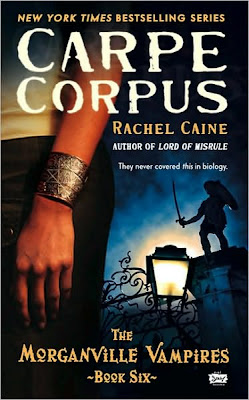Fangs for the Fantasy is a site that examines Urban Fantasy through a Social Justice lens. Now we’ve talked a lot about the Social Justice side of things, but we’re just going to take a moment to pin down what we consider the “Urban Fantasy” side of things. What is Urban Fantasy?
This particularly matters because we are always open to book suggestions – and we do receive a lot, both from authors and readers. Of course, some of these suggestions are not what we’d consider Urban Fantasy. That’s not essentially a problem, we’re not hugely strict about the genre we read (at least, so long as it falls within the realm of Speculative Fiction) but at the same time, Urban Fantasy is our preference and non-Urban Fantasy will be pushed to the back of the line more often than not.
Of course, when I sit down to actually define what is and what isn’t Urban Fantasy… it’s not so easy because the lines aren’t clear and the more I think this post is probably going to be more one of discussion than it is a definitive definition
I think we need to draw several lines here between genres and see what we would consider belongs to each. I think in particular we need to look at:
Urban Fantasy
Fantasy
Sci-Fi
Horror
Steampunk
YA
Paranormal Romance.
Urban Fantasy vs Fantasy:
Now, I’m actually go out on a limb here and say that the “urban” part of Urban Fantasy is actually a misnomer – since urban merely suggests the presence of a city and a lot of Urban Fantasy does not contain an Urban setting while a lot of Classic or High Fantasy can, indeed, be city based. Let me throw out some examples.
Say, for example, Tolkein's heirs write a novel based on Middle Earth, set in Osgiliath or Rivendell. We have a Fantasy novel set entirely in a city – yet I think we'd all agree that the mere presence of a city does not make that urban fantasy, it's clearly High Fantasy. Similarly, if George R. R. Martin set a Game of Thrones entirely within Kings Landing or another city, we'd still call it High Fantasy
Similarly, True Blood is set in Bon Temps. Now I think this is way beyond the definition of “city” however there's no way this is Fantasy. Kelley Armstrong sets large amounts of the Otherworld series in rural areas. Richelle Mead's Vampire Academy again, takes place primarily in rural, out of the way places even Kevin Hearne’s Iron Druid Series doesn't exactly ground out in major urban centres, nor does Patricia Briggs. In fact, I would say for every Urban Fantasy set in a major city there is 1 or 2 set in rural regions.
So, yes, I say that the Urban element of Urban Fantasy is misleading.
Fantasy
Sci-Fi
Horror
Steampunk
YA
Paranormal Romance.
Urban Fantasy vs Fantasy:
Now, I’m actually go out on a limb here and say that the “urban” part of Urban Fantasy is actually a misnomer – since urban merely suggests the presence of a city and a lot of Urban Fantasy does not contain an Urban setting while a lot of Classic or High Fantasy can, indeed, be city based. Let me throw out some examples.
Say, for example, Tolkein's heirs write a novel based on Middle Earth, set in Osgiliath or Rivendell. We have a Fantasy novel set entirely in a city – yet I think we'd all agree that the mere presence of a city does not make that urban fantasy, it's clearly High Fantasy. Similarly, if George R. R. Martin set a Game of Thrones entirely within Kings Landing or another city, we'd still call it High Fantasy
Similarly, True Blood is set in Bon Temps. Now I think this is way beyond the definition of “city” however there's no way this is Fantasy. Kelley Armstrong sets large amounts of the Otherworld series in rural areas. Richelle Mead's Vampire Academy again, takes place primarily in rural, out of the way places even Kevin Hearne’s Iron Druid Series doesn't exactly ground out in major urban centres, nor does Patricia Briggs. In fact, I would say for every Urban Fantasy set in a major city there is 1 or 2 set in rural regions.
So, yes, I say that the Urban element of Urban Fantasy is misleading.
I'm going to make a different distinction. To me Urban Fantasy involves OUR WORLD. Earth, as we know it, with extras. It may have been radically altered in some ways, but ultimately it's our world or very close to it. This way I think you can also have HISTORICAL Urban Fantasy – say, medieval Britain with vampires and it still be Urban Fantasy even if it has a Medieval setting (medieval setting was going to be my other criteria for Fantasy – but I disagree. A magical modern technology world that is completely different from Earth would be Fantasy/Sci-fi IMO). Of course, I know I’m on somewhat shaky ground on the idea of Medieval Urban Fantasy and Modern High Fantasy and I’d like to know what other people think


















